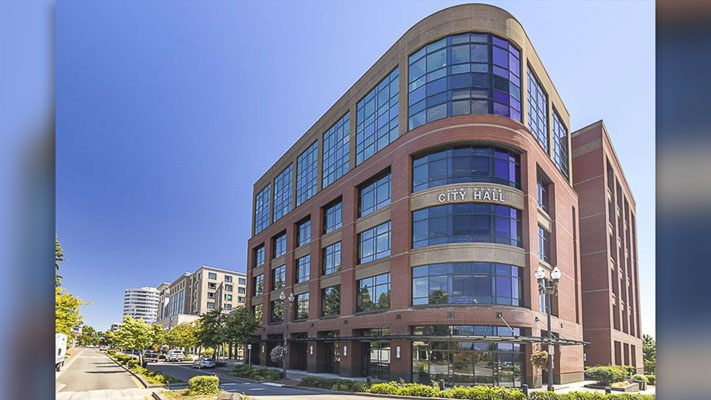
Todd Myers of the Washington Policy Center challenges the assessment of city of Vancouver officials about the tiny benefit residents would get for a $9 million price tag
Todd Myers
Washington Policy Center
Simple question: how should we measure the success of climate policy?
Answer: By maximizing CO2 reduction for every dollar spent.

This smart approach is standard practice for many private companies. Both Microsoft and Amazon spend on projects that are the fastest and most effective at reducing their impact on the climate.
For example, a government subsidy for rooftop solar in cloudy Western Washington costs about $200 to reduce one metric ton of CO2. Projects that capture methane at landfills cost less than $10 to gain the same benefit – 20 times more effective.
When it comes to public policy, however, many climate policies are based on metrics that are simplistic, baseless, or even completely inaccurate. Two recent examples make the point.
One media analysis of the recent climate spending package passed by Congress said it “marks the United States as a global leader in the effort” to reduce carbon emissions.” By what metric does the package make the U.S. a “leader” according to the authors? They claimed, “it represents the largest climate investment in U.S. history.” Not most effective, just the largest.
Spending more doesn’t mean accomplishing more. The Congressional Budget Office reports the bill will subsidize a miniscule 11,000 electric vehicles (EV) nationwide in 2023. Climate policy expert Dr. Roger Pielke Jr. says he doubts the new law will live up to predictions. Is it likely “that U.S. electricity emissions decrease by 70% by 2031,” he asks. “No, in my view, not remotely.”
How much we spend isn’t a good way to judge climate policy.
Also having difficulty is the City of Vancouver. Its draft Climate Action Plan (CAP) claims the cost of the city’s inaction would amount to more than $13 million per year. When I asked city staff where they got this number, they claimed, “the City and its residents would realize (on average over the next 20 years) the full value of $13 million annual cost savings,” if the CAP was successful.
This is simply incorrect and shows city staff don’t understand their own data.
The $13 million uses costs from the Washington State Utilities and Transportation Commission, which notes that this amount includes “the full (global) damages caused by GHG emissions,” not just in Vancouver. The vast majority of that theoretical $13 million in benefits would go to people outside the city. Residents would see only the tiniest percentage – Vancouver is about 0.002% of worldwide population – for a total of $318.33. And for that tiny benefit, Vancouver residents would pay $9 million.
However, even that calculation overstates it. Washington’s new cap on greenhouse gas emissions will take effect in 2023 and mandates statewide CO2 reductions. Vancouver’s plan would not add to the already mandated reductions but would simply spend more money to achieve reductions that would otherwise occur. In other words, the benefit of Vancouver’s climate plan – not just to residents, but to the entire globe – is likely to be zero.
Politicians are getting credit for empty promises but are not held accountable for failure. Washington state has spent hundreds of millions of dollars on climate projects while missing every CO2 target. Even as they fail, those same politicians claim to be “leaders” on climate change. Too many are believing them and ignoring the real-world results.
We know a lot about how to address the risk of climate change, effectively and relatively inexpensively. But as long as politicians in Vancouver, Olympia, and Washington D.C. get away with misleading math and ridiculous rhetoric, the risks from climate change will grow even as we waste more taxpayer money on the problem.
Todd Myers is the director of the Center for the Environment at the Washington Policy Center.
Also read:
- Opinion: HB 1217 – Rent control is law … or is it?Vancouver resident Bill Black challenges the enforceability of Washington’s new rent control law, HB 1217, warning it may worsen the state’s housing shortage.
- Letter: ‘Marie (Gluesenkamp Perez) sadly fails to recognize the sanctity of human life from conception to natural death’Vancouver resident Ann Makar shares her letter to Congresswoman Marie Gluesenkamp Perez and criticizes her stance on the sanctity of human life.
- Letter: ‘Anyone from the majority party listening?’In a letter to the editor, area resident Bob Zak argues that HB 1163 is unconstitutional and criticizes the legislative majority for supporting it.
- POLL: Should the I-5 Bridge project be paused over cost and bidding concerns?Clark County Today’s weekly poll asks whether the I-5 Bridge replacement should be paused as questions grow around rising costs and a lack of competitive bids.
- Opinion: 18th District Sen. Adrian Cortes explains positions on legislation he voted onDick Rylander shares responses from Sen. Adrian Cortes about his votes and reasoning on major legislation this session.










